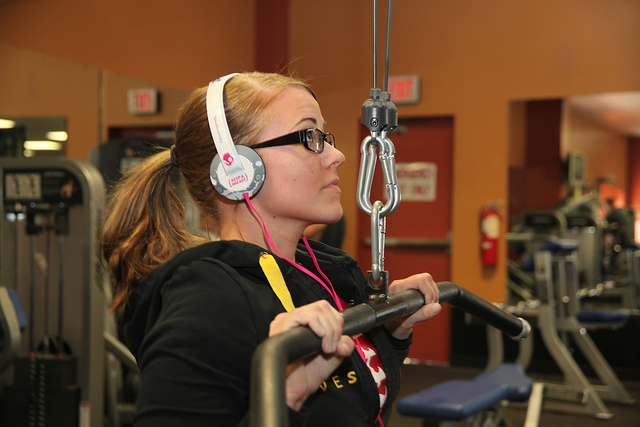I am a great believer in reading and listening widely to pick up inspiration. My current job has deprived me of the long drives that used to allow me to listen to audiobooks and podcasts on a frequent basis, but I have tried to substitute the use of podcasts and other listening as my accompaniment while tidying the kitchen. Today while listening to one of my favourite podcasts I picked up on a wonderful gem about personal learning from the Freakonomics podcast. The main guest with the excellent host Stephen Dubner was the fascinating Katherine Milkman, (assistant professor at the Wharton School at Penn), who is researching the use of behavioural economics to help us address the difficulties we all have with willpower.
I was totally thrilled by her idea for the unlikely commercial product, “Gymflix”, which would be a paid subscription service to allow you to watch TV shows and movies in the way that Netflix allows you to at present; the difference would be that the service would only allow you to watch your paid-for entertainment at the gym! Why would anyone dream of paying for such a service? It is all because of a rather elegant little consequence of her field, behavioural economics, known as “temptation bundling”.
There are things we might like to achieve in life such as dieting, quitting unhealthy habits, exercising more etc. We know ourselves to be very susceptible to the temptation to avoid the desired behaviours because they are hard! We also know that we have some things in our lives that we absolutely love doing; in fact these things that we love doing are often the very things that stop us from doing what we should to meet our goals! The answer is in principle at least gloriously simple, bundle the desired and the desirable behaviour together. In Katharine’s studies, she has been able to establish that bundling the enjoyment of a particularly addictive audiobook, with a workout in the gym makes a significant difference to our success. She used control groups to eliminate the most obvious sources of error in checking these approaches. The problem, which one version of her control groups in her study identifies is that truly bundling these together in a way that means you can’t enjoy the rewarding activity without undertaking the less pleasant activity is tough. Perhaps that burger that you enjoy should only be a reward taken after tough hospital visits with that ill but difficult aunt? Those new clothes you crave only bought as a reward for making some target weight loss or maintenance. (Or weight gain in some cases). The main challenge here is for us to ensure that we can establish some strong, and ideally unavoidable link between something desirable and something that we need to get better at tackling? The hypothetical “Gymflix” might just sell because we all know we need a strong, bundled incentive. What might you be able to link together?
Katherine’s second useful piece of insight is the observation that as humans we seem to be able to constantly reset our internal “accounting periods”. New year is a classic example of where we see this. How many of us try to give up or begin something on the 1st of January? Would you be surprised to know that working with Google, Katherine was able to establish that searches around topics like weight-loss have a peak of search frequency on a Monday; as she puts it, the accounting period here is the new week. (She did check neutral terms as a control and found that searches like “weather” showed no time period start-bias). The usefulness of this was illustrated in an experiment when Katherine and her team used the “first day of spring” as a fairly artificial, but plausible accounting period start with a group and found a significant effect in terms of people engaging in more of the desirable changes they wanted. The upshot of this, psychologically, is that you could benefit from not waiting till new year, but instead exploiting your internal bias towards fresh accounting periods by finding the next significant date that you could use to launch your change programme; next Monday, your next holiday, the official start of Summer, anything you can persuade your brain to treat as significant!
I certainly urge you to enjoy Katherine’s engaging account of her learning in this area on this episode of the Freakonomics podcast; in fact, I strongly urge you to listen to it regularly anyway, it’s free and it has some fantastic learning and a marvellous quirky style to enjoy.
This a relatively new and strange area for us, this “lifehacker” style of learning, so it would be good to know whether you find it useful, as part of our desire to grow a more eclectic magazine here?
Written by Matthew Boyle
Photo under creative commons from “Cherry Point on Flickr: https://www.flickr.com/photos/mcas_cherry_point/6714753495/
